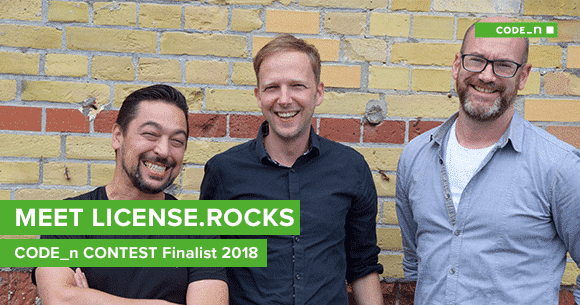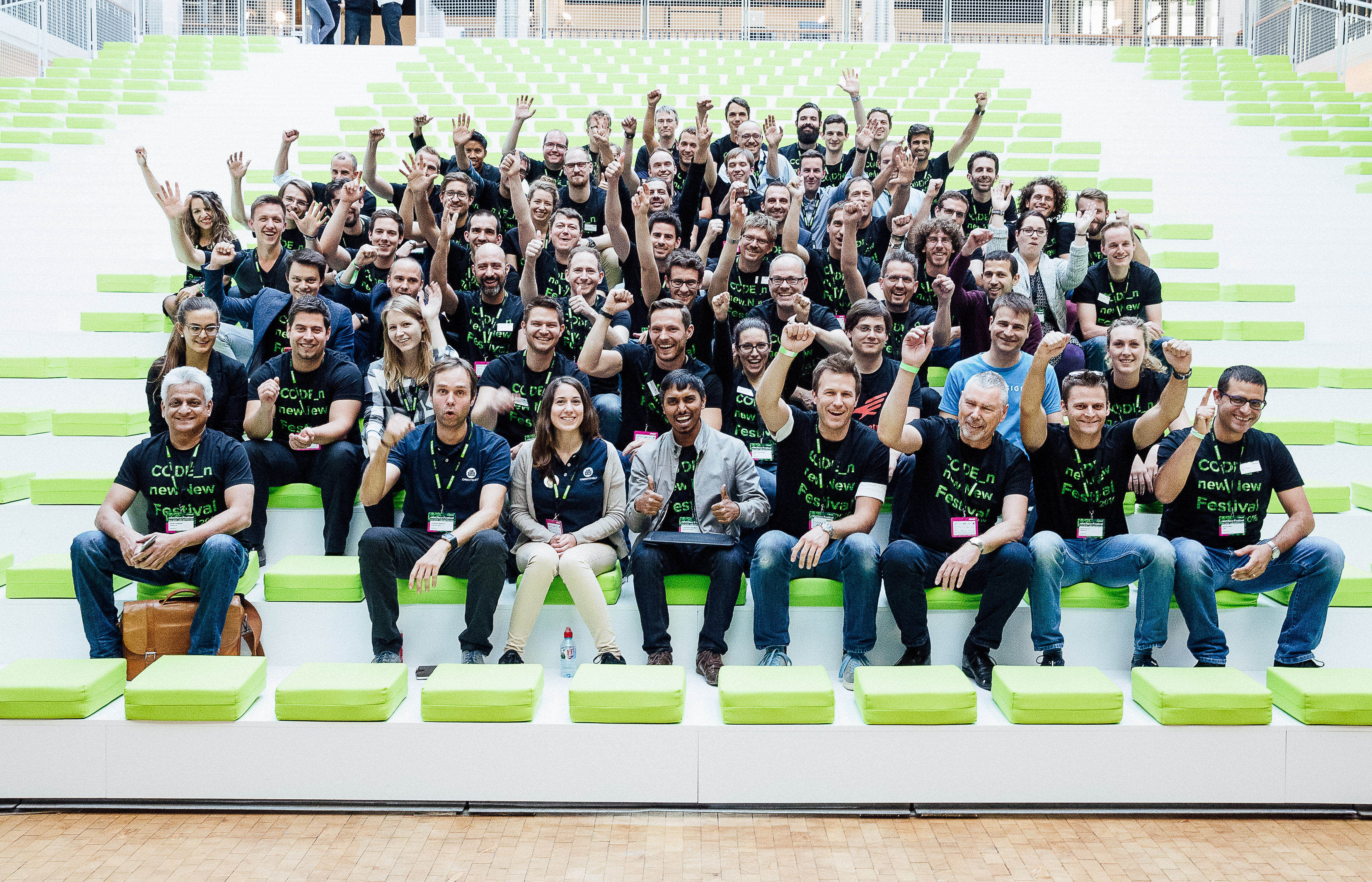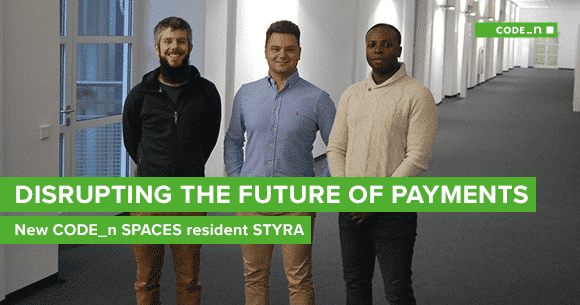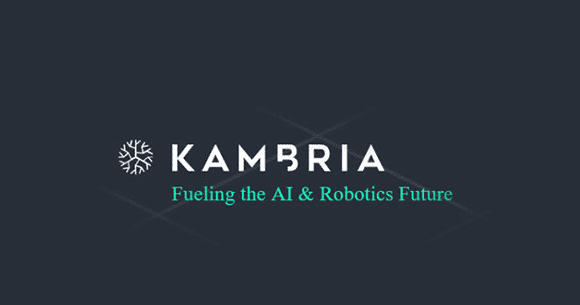MEET OUR CODE_N CONTEST FINALISTS 2018: license.rocks GmbH from Germany

Working towards simplifying the software licensing market is CODE_n CONTEST Finalist license.rocks. Using blockchain technology, the startup digitalizes licenses, providing software publishers and resellers with a new sales pipeline. Find out how their software empowers all kinds of clients to resell software licenses online in our interview with founder and managing director Frank Bartels.
Jessica: What is license.rocks all about?
Frank: license.rocks is a blockchain-powered approach to tracking, managing, and trading software licenses at all stages of the supply chain in a transparent, secure, and automated manner. We use blockchain technology to break down data silos in the conventional transaction chain and for the first time visualize them in a uniform and coherent way.
Our solution simplifies license management and automates license trading (for used and later also new software), providing the software publishers and resellers a new sales pipeline. We are on track to develop a decentralized licensing framework providing an immutable audit trail.
Jessica: How did you come up with the idea?
Frank: Daud and I have been working together in the software management space for more than ten years. At our former company, Daud was a product manager responsible for an entire product suite while I headed up a service division. Our service and product portfolio solved all challenges in the life cycle of software, but when it came to licensing, things became complex.
Enterprises are often unsure whether they are complying with license agreements. It can take large investments in expensive projects and processes to safeguard compliance. On the supply side, revenue can be lost through intentional or unintentional contraventions of licensing conditions. Approximately 39% of all software used by enterprises is not properly licensed. Digitalizing licenses with clear ownership structures and metrics will go a long way toward dealing with this problem.
When we were sitting together in Berlin’s bitcoin street drinking a few brews, we started discussing what usecases could really make sense using blockchain technology. We all agreed on (software) licensing and found no one currently tackling the issue besides universities on a theoretical basis.
Jessica: What are you trying to solve?
Frank: Complexity! Software licensing is a complex process, with few standards and a multitude of data silos. We intend to solve complexity by bringing transparency, trust, and automation to software licensing.
For our first use case, we built an audit trail for selling software licenses securely and transparently on the second-hand market in accordance with European Union guidelines and regulations. We digitalize licenses, adding our expertise so clients can verify whether software licenses can be sold. For the first time, all kinds of clients are empowered to resell software licenses online. This gives buyers security because they can check if a seller is authorized to sell a license. All transactions are stored immutably and our audit trail visualizes the origins of a license.
Our vision is to enable any license to become a digital asset. It will be possible to track license movements between all parties, providing transparent ownership and an immutable audit trail. All stakeholders in the transaction chain (license publisher, reseller, or license approver) will be incentivized based on trading using fair and transparent tokens.
Jessica: How do you see the future of licensing? What are your company’s short- and long-term goals?
Frank: We believe software development, distribution, and use can be more decentralized. Future licensing needs to support this without adding complexity. At the same time, they should make everything simpler for providers and their customers. Then the service-driven software asset management market will disappear. Long-required license standards will emerge, as will license models that support user needs. These will become popular because they will support micro payments for using software on demand. We will add value with an easy-to-use license framework for anyone to build, and all stakeholders will receive a fair share of license revenues according to the amount of work they invest. To build a foundation for this, token trading will incentivize collaboration.
Our short-term goal is to simplify the complexity of different software license models. People who are not licensing experts (such as liquidators, insolvency managers, and IT managers) will be able to understand the value of their software assets and the options they have to resell them. Understanding licenses will involve less effort but offer much more certainty, especially regarding legal aspects. One customer project we are working on involves selling licenses in an insolvency case. The value of the licenses on the second-hand market will be more than €1 million. The project has taught us some amazing things regarding processes and needed product features and we are still learning from it.
The next building block will be to enable anyone to set up license tokens so they can capture all license entitlements. Our vision is of a clear and easy-to-understand interface that will enable anyone to create license tokens. Our last major building block will then be to provide a software development kit to protect software, with launch parameters for checking if appropriate license tokens already exist.
Our long-term goal is to develop a comprehensive solution for the software licensing market (create, manage, monetize and protect). We also intend to establish a broad repertoire of use cases including other kinds of digital goods.
Jessica: Thank you for the interview, Frank!
Meet license.rocks at the new.New Festival 2018 this fall, in Stuttgart!






Write a comment